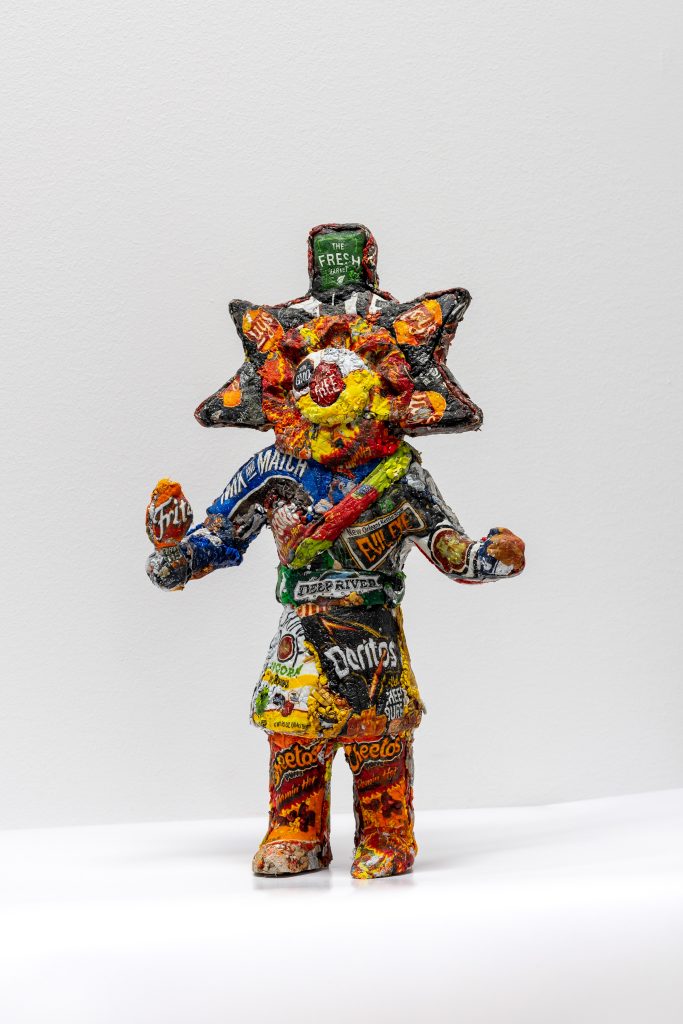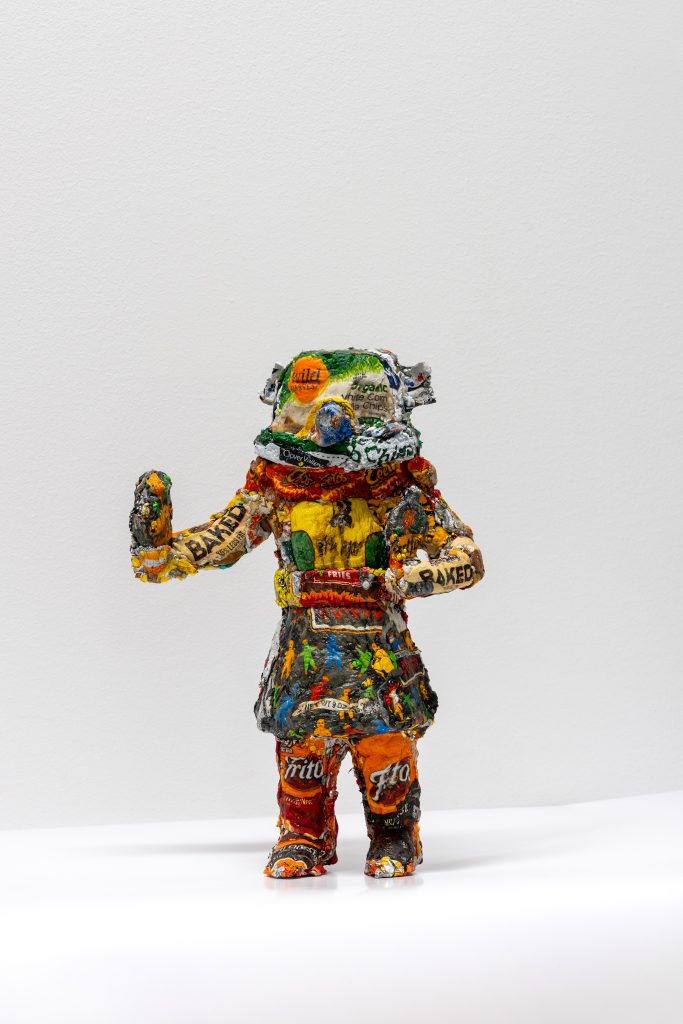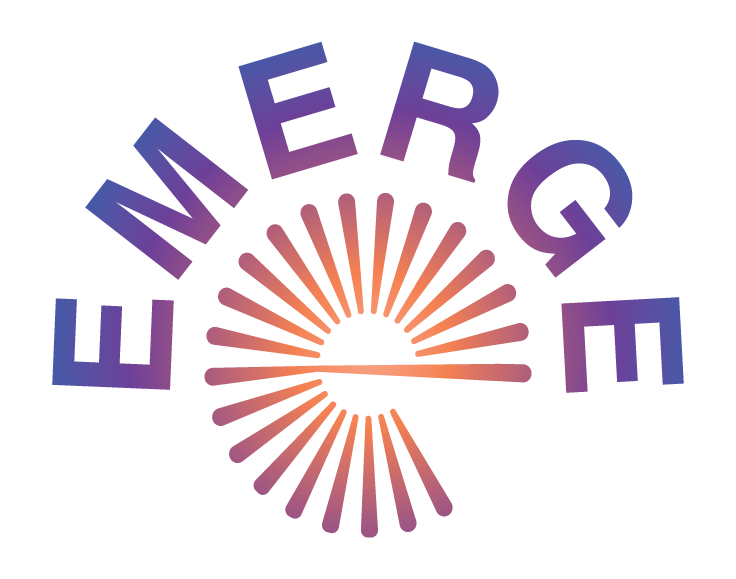Great Value, 2021

Spotted Corn, 2021
Aluminum laminated with polypropylene; chip bags
10″ x 5″ x 3.5″
The title of this series, Great Value, is taken from the name of Wal-Mart’s generic line of household goods. Great Value brings to mind new products, low prices, and issues of mass consumption. The phrase brims with promise, yet poses the potential of overconsumption and waste. These objects are called kachina dolls, after those created by the Hopi tribe and other Pueblo peoples in what is now the southwestern United States of America. The original kachinas were educational devices, instructing young women in the spirits that controlled rain, harvests, and other fortunes; they are also a miniature of the divine spirit they depict, twice removed. To this tradition of duplication and reenactment, I offer another appeal to the vestigial power of proxies, set in the metallic flesh of our most thoughtless disposals: approximately 200 chip bags that I retrieved from the street and trash bins while exploring Chicago. After microwaving hundreds of bags, this material became malleable enough to combine into these figures. The faked desert-worshiping flair of Sun Chips, Veggie Harvest, and Frito-Lay stays baked into these idols, and I play with their existing graphic surfaces, allowing certain elements to shrivel and others to stretch.
— Dylan Languell

Ogre, 2021
Aluminum laminated with polypropylene; chip bags
11.25″ x 6″ x 3.5″
Dylan Languell is committed to exploring accessible resources primarily in the domestic field, by reimagining them through their disposal and subsequent reactivation as a “transitional material.” This is how his primary material, paint, initially found him and continues to be a working language throughout his practice. Paint can be a material that has a kind of invisible universal familiarity – something that people experience every day without thinking about- and this grounds his interest towards using an inclusive material in his practice. As a result, Languell began to consider our larger association to material consumption and the exchange that we often forgo in these relationships. Languell is driven to explore these and like materials’ alternative potential into a transformative composition that relies contextually on the material as an embodiment of these ideas. Recycled and reclaimed materials continue to tie his practice together in understanding process, attributes, and surrounding context. Spending time in Indian Reservations and exploring his Pueblo ancestors’ lives have inspired pieces like these.
